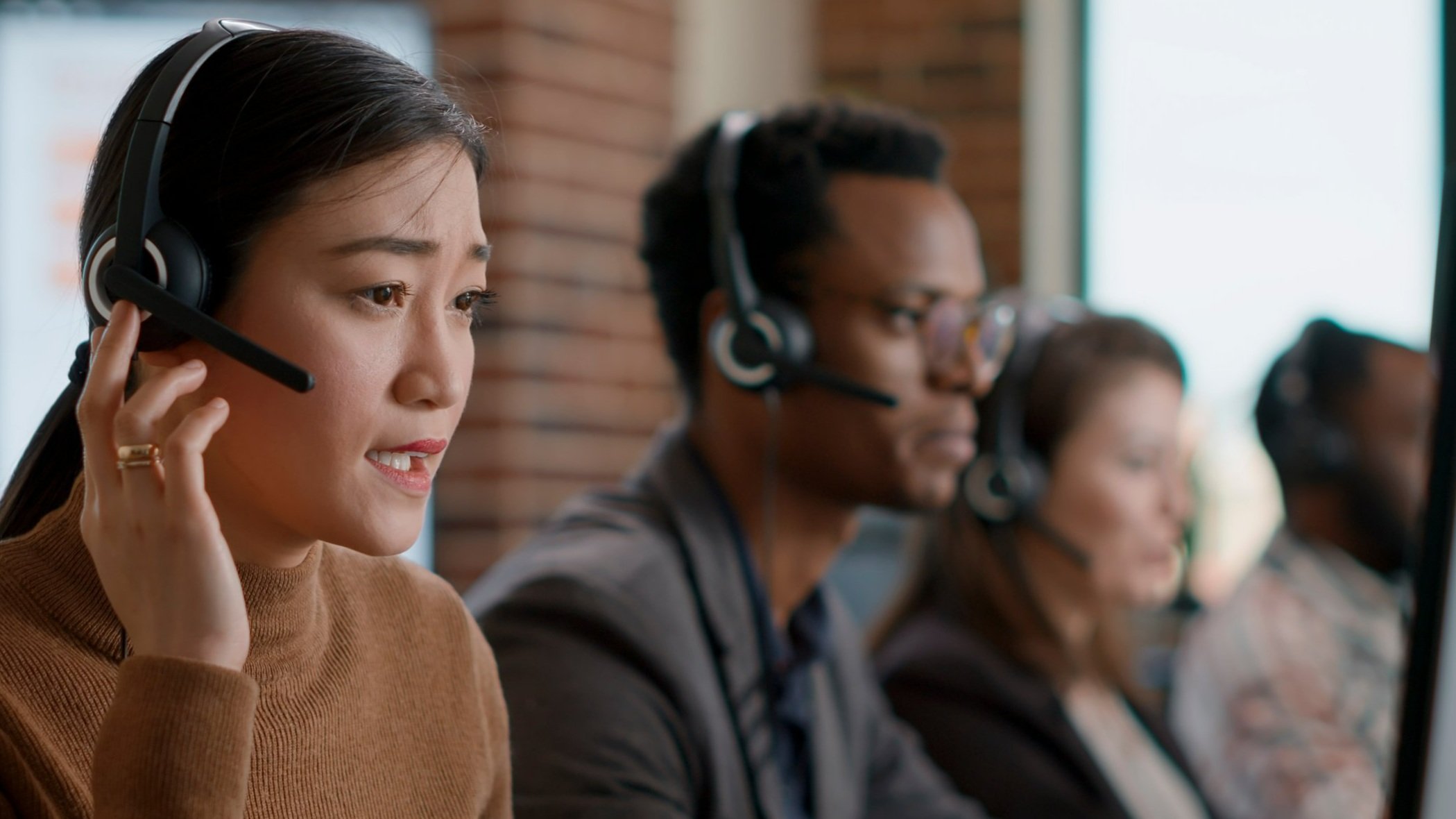Telephone interviewers are truly the unsung heroes in market research projects. This type of interviewing is much more than making calls and collecting answers, especially today when respondents have so little patience and so many demands for their attention. From putting the respondent at ease to controlling the pace of the interview to effortlessly probing for more in-depth insights, there's an art to the role. And it's just the right blend of natural skills and training that enables great telephone interviewers to collect quality data that will help inform business decisions. That's what makes them so essential to market research projects and, at the same time, so hard to find. Here are our tips for recruiting and retaining great telephone interviewers at ADRG.
Qualities of a Great Telephone Interviewer
As mentioned above, when it comes to the qualities of a great telephone interviewer, we believe it's a mix of natural ability and training. Theresa Anderson, ADRG's National Director of Operations, shares, "When I'm looking at people for this job, I know this sounds so simple, but do they have a friendly voice? Also, do they know how to use their voice with inflection? For example, when they get to scale questions, or they're going to have to prompt at different times, can they use inflection to get respondents to understand what we're going to be asking them to do? Then, being able to enunciate anything that we have to pronounce to make sure we're clear is really a key there."
While Anderson notes that prior experience on the phone, like in customer service, helps, it's not a prerequisite because you can "certainly train on the rules, accessing the system, navigating scripts, respectfully controlling the tempo of interviews, entering verbatims, and diffusing challenging interactions, whereas with those natural abilities, you have them, or you don't."
What's more, "People laugh when I say this, but it's so true; you have to like talking to people and be interested in what they say for a telephone interviewer to be successful and come across as genuine," states Anderson.
How to Find Telephone Interviewers
In the market research industry today, it may seem like finding people with the qualities above who want to be telephone interviewers is like finding that ‘needle in a haystack.’ We certainly experience the challenge ourselves, but ADRG has successfully recruited the right people for the role by focusing on people who need part-time, supplemental income, and flexible schedules, specifically among audiences that include college students and retirees.
Anderson states, "College students, to me, are fantastic. They need flexibility because schedules change every semester, and we can accommodate that with them. Plus, as a telephone interviewer, you'll learn skills you can take into your life and other jobs; that's a selling point for them."
"Retirees are another good option," she continues. "So many people want to work remotely today, but retirees love to come into the office. It gives them purpose and connection. At break time, they talk to colleagues or meet up for breakfast or after work, and that's important to them. And they're just great employees: intelligent, hard-working, and more tech-savvy than you would think.”
For recruiting, we use traditional methods like employee referrals, job boards like Indeed, and the company website. But, to reach potential college students and retiree candidates, we also take a more "boots on the ground approach." Anderson shares, "We'll go into the community where they live or spend time. For example, I've actually advertised in subdivision newsletters. We'll form relationships with local colleges and work with them to get the word out about telephone interviewing positions. And, of course, for college students, whenever we can use social media to connect, we do."
But when it comes down to it, to consistently find great telephone interviewers, "We have to constantly evolve and optimize our recruiting strategy whether it's the audiences we go after or how we reach them," Anderson says.
Retaining Great Interviewers
Realistically, there will be turnover, given the nature of the role and who we recruit. But we minimize it as best we can in several ways. Anderson states, "I make sure that candidates really understand the job upfront. Also, you have to have good training. I don't mean by the lengths of days; you have to have good support. Continuing training is key, too, making sure they feel supported so they keep growing. But often, what tips the scale in our favor is the great environment at ADRG. When people are happy, fulfilled, and the role fits their lifestyle, they'll stay."
What Our Telephone Interviewers Have To Say
Perhaps the best way to communicate the importance of the role in market research projects and to the respondents and interviewers is to go straight to the source. Here's what some of ADRG's interviewers had to say about what makes them great telephone interviewers.
"I believe that what makes me a good interviewer is my willingness and ability to talk to people. I enjoy speaking with different people and try to be sure and keep the tone of my voice upbeat. If people truly think you are interested in what they say, they are more apt to talk with you. I also make sure to thank them several times during an interview, which I believe makes them feel as if they are doing something good for their community or country."
-Kellie M.
"I think what helps my interviewing skills is that I enjoy talking with people I encounter daily, whether during my daily walk or at the stores, businesses, or professional offices I visit. I try to smile at people and make "small talk" whenever appropriate. This sharpens my "people" skills for when I am interviewing on the phone."
-Mark S.
"When I call respondents, I really try to make a human connection with them. They are sharing their time with me, and I try to show them how much I appreciate that. First and foremost, I try to be pleasant, engaging, and personable. For example, when a respondent is juggling a baby while being interviewed, I will tell them at the end that it was a pleasure listening to their little one."
-Jacqueline S.
"When I walk into "my office," I leave everything else at the door. At this point, nothing else matters. Even if I've had the worst day ever, I know I will eventually get someone on the phone who will make me smile."
-Tana G.
"I don't know if it's anything specific I am doing besides being professional and polite. I have had people say to me many times it's my voice ¾ the sound or tone. They feel it's calming or trusting.
-Heather S.
"No matter how good or bad my last call was, I go into EACH call as if it's my first, with the same energy right up until the last call."
- Ebonee B.
"I am always nice. A friendly voice or a kind word can go a long way. I always thank the respondent a few times during calls (especially long ones) and move quickly but accurately. I smile when I dial! I always try my best, take my job seriously, and remember to have fun while dialing.
-Jamie B.
While we are proud of our size and systems, our clients tell us that what sets us apart from other data collectors is our people, of which our telephone interviewers are a large part, and we wholeheartedly agree!
For over 35 years, ADRG has prided itself on having the best telephone interviewers in the industry. We employ hundreds of personnel from coast to coast and maintain numerous interviewing centers, as well as a large team of remote agents, throughout the United States. These facilities house hundreds of interviewing stations, each equipped with the latest in multimodal survey technologies.
For more information on how we could put our telephone interviewing expertise to work for you, contact ADRG today at (866) 968-7224 or info@americandirections.com





